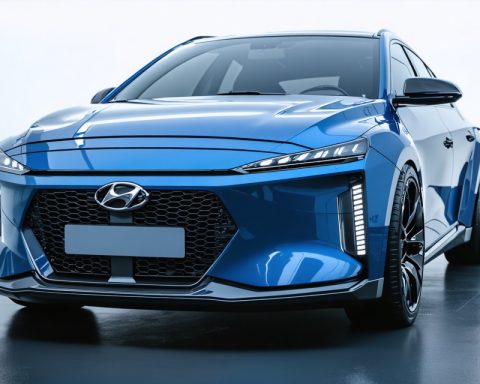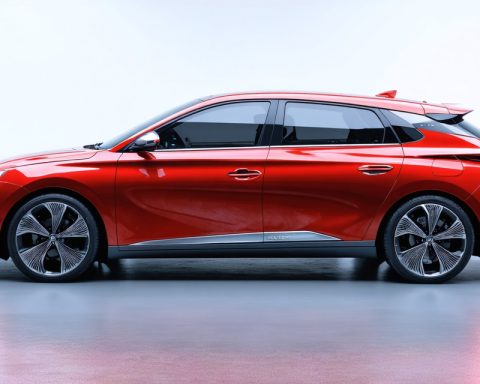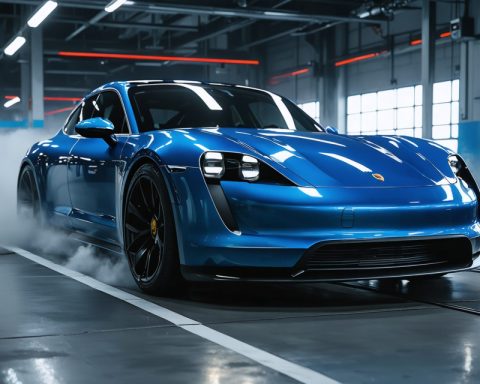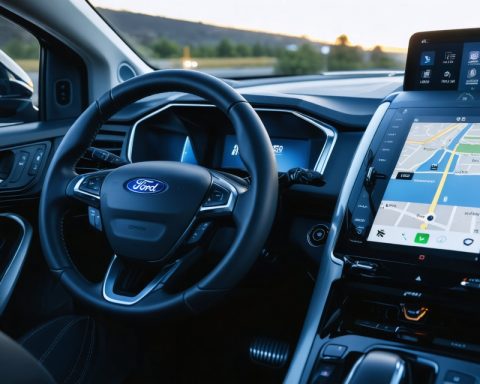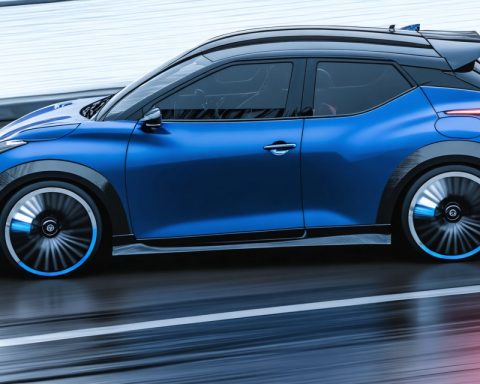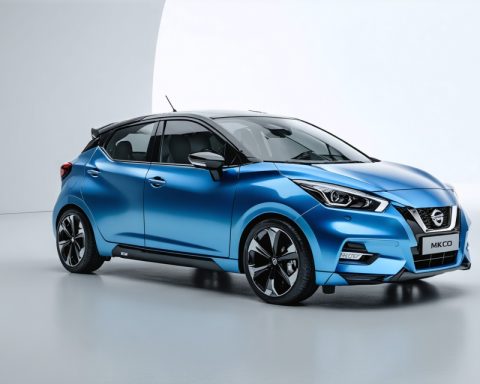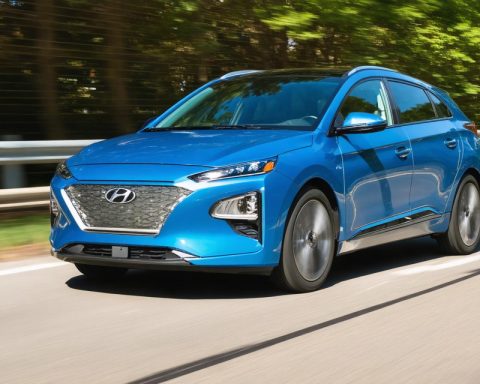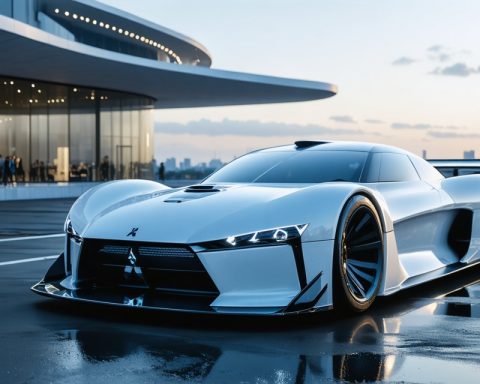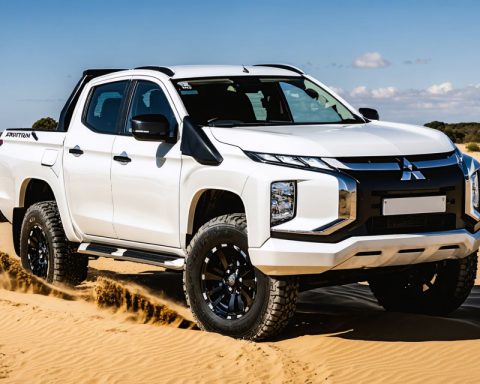- Hyundai’s new Metaplant America in Ellabell, Georgia, signals a major shift in the U.S. automotive industry.
- The plant will produce up to 500,000 electric and hybrid vehicles annually, including the upcoming IONIQ 9 SUV.
- Hyundai’s $21 billion investment in U.S. manufacturing showcases a commitment to local economic growth amid global trade uncertainties.
- Advanced AI and robotics are central to creating a sustainable, efficient, and human-centered production process.
- The IONIQ 9 aims to align with growing consumer demand for environmentally conscious vehicles.
- Hyundai emphasizes building a collaborative ecosystem in Georgia, blending South Korean innovation with American craftsmanship.
- The initiative supports a broader movement toward sustainable transportation and local job creation.
Amid the dense forests and rolling hills of Ellabell, Georgia, Hyundai’s sprawling new Metaplant America roars to life, setting the stage for a pivotal transformation in the American automotive landscape. This mega-plant, an impressive testament to Hyundai’s commitment to innovation, is not just a milestone for the company, but a beacon of change for the entire industry.
At this cutting-edge facility, where a symphony of machines and minds orchestrate the future of mobility, the eagerly anticipated IONIQ 9 SUV is taking shape. It is an audacious leap for Hyundai—a three-row electric powerhouse that promises to redefine the driving experience. Coupled with a yearly goal to produce up to 500,000 electric and hybrid vehicles under the Hyundai, Kia, and Genesis banners, the plant signifies the dawn of an ambitious era for electric vehicles (EVs) in the U.S.
This burgeoning hub of innovation is set amidst a changing political landscape. The recent announcement of 25% tariffs on auto imports by former President Donald Trump casts a shadow of uncertainty on the global automotive industry, potentially disrupting South Korea’s robust vehicle exports. Yet, Hyundai’s investment of $21 billion in U.S. manufacturing fortifies its stance, illustrating a resilient commitment to strengthening local ties and fostering economic growth.
Hyundai’s strategic leap forward is not just about vehicles; it’s about building a techno-savvy ecosystem. Utilizing artificial intelligence and advanced robotics, the Georgia plant integrates every production aspect—from order collection to assembly—creating a streamlined and human-centered manufacturing process. This forward-thinking approach not only emphasizes sustainability and efficiency but also enriches the workforce, creating thousands of new jobs and spurring local development as Hyundai paves a path to a greener future.
The IONIQ 9, expected to hit roads by spring, is much more than a car; it is a statement of intent from Hyundai. With intricate design and green technology at its core, it aims to captivate the imagination of American consumers, aligning perfectly with the growing appetite for environmentally conscious choices.
Hyundai’s bold vision doesn’t stop at innovation alone; it extends its roots deep into Georgia’s community, nurturing a partnership built on craftsmanship and collaboration. It’s a union of South Korean ingenuity and American determination, and together, they are crafting a future that reverberates far beyond assembly lines.
The takeaway? Hyundai is not merely building cars; it’s architecting a revolution in mobility that promises to accelerate America’s transition to sustainable transportation. In Ellabell, Georgia, the hum of machinery crescendos into a chorus of progress, heralding a vibrant era for the automobile—a movement that is as much about science and speed as it is about the people who steer it.
Hyundai’s Metaplant: Revolutionizing the Future of Electric Vehicles in America
Unveiling the Future of Hyundai’s Metaplant America: New Insights and Predictions
Located in Ellabell, Georgia, Hyundai’s Metaplant America is not only transforming the American automotive landscape but also setting new standards in sustainable, innovative manufacturing. This $21 billion investment marks Hyundai’s largest manufacturing venture in the U.S., showcasing the company’s commitment to driving the future of electric vehicles (EVs). The plant’s key focus is the production of the much-anticipated IONIQ 9 SUV, a significant step towards achieving Hyundai’s goal of producing 500,000 electric and hybrid vehicles annually under the Hyundai, Kia, and Genesis brands.
Leveraging Industry 4.0: AI and Robotics in Hyundai’s Manufacturing
Hyundai’s commitment to innovation extends beyond vehicle production as the Georgia plant incorporates cutting-edge technology, including artificial intelligence and advanced robotics. This aligns with the principles of Industry 4.0, an industrial revolution characterized by smart manufacturing and interconnected systems, enhancing efficiency, reducing waste, and maximizing productivity. Hyundai’s integration of AI in manufacturing processes supports a more sustainable and eco-friendly production environment.
Real-World Use Cases: Impact on Local Economy and Employment
With its advanced manufacturing capabilities, the Metaplant America is expected to create thousands of jobs, significantly boosting the local economy in Georgia. The plant not only provides employment opportunities but also fosters local talent enhancement, providing skills training and development programs to support the workforce’s growth and adaptability in a technology-driven environment.
EV Market Forecast and Industry Trends
The global EV market is experiencing rapid growth, with sales projected to exceed 30 million units by 2030. Hyundai’s aggressive investment in the U.S. positions the company at the forefront of this evolution, preparing to meet rising consumer demand for sustainable transportation solutions. The introduction of the IONIQ 9 and other models underscores Hyundai’s strategy to expand its EV lineup, tapping into the burgeoning electric SUV market sector.
IONIQ 9: Features, Specs, and Anticipated Performance
Expected to launch by spring, the IONIQ 9 will blend intricate design with advanced green technology, offering competitive range and performance features tailored for the American market. While detailed specs have yet to be fully disclosed, industry expectations suggest a focus on extended range, fast-charging capabilities, and state-of-the-art in-car technology to enhance driving experience and consumer satisfaction.
Environmental and Sustainability Efforts
Hyundai’s emphasis on environmental responsibility transcends vehicle production. The Metaplant’s sustainable approach includes energy-efficient operations, reduced emissions throughout the manufacturing process, and a commitment to using eco-friendly materials. These initiatives align with global sustainability goals and reinforce Hyundai’s dedication to leading the charge in sustainable mobility.
Controversies and Economic Challenges
While Hyundai’s expansion demonstrates resilience, challenges remain—such as the potential impact of international tariffs on auto imports. Changes in trade conditions could influence supply chain and cost structures, requiring adaptive strategies from Hyundai to mitigate adverse impacts while maximizing local production benefits.
Actionable Recommendations: How to Prepare for the EV Transition
1. Stay Informed: Keep abreast of evolving EV technologies and trends. As major automakers like Hyundai transition to EVs, consumers should understand the benefits and implications of electric vehicle ownership.
2. Sustainability Initiatives: Support and promote initiatives that encourage sustainable practices within the automotive industry and beyond.
3. Consideration of Long-term Costs: When investing in electric vehicles, weigh upfront costs against long-term savings on fuel and maintenance.
4. Federal Incentives: Explore government incentives and rebates for purchasing EVs, which can offset initial purchase prices and encourage sustainable choices.
Conclusion
Hyundai’s ambitious venture with the Metaplant America is more than a manufacturing success; it’s a cornerstone in the revolution of sustainable transportation in the U.S. As Hyundai continues to integrate innovation, education, and economy, the company remains a key player in driving the future of mobility.
Explore more about the innovations and changes Hyundai is making in the automotive industry at Hyundai.
—

